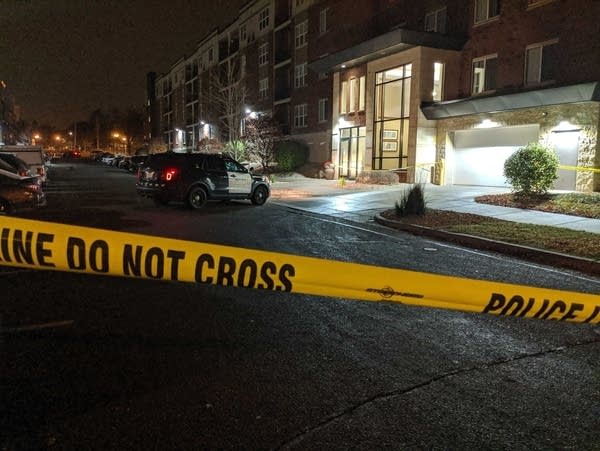GOP lawmakers seek to pressure cities to reduce crime

Go Deeper.
Create an account or log in to save stories.
Like this?
Thanks for liking this story! We have added it to a list of your favorite stories.
Republicans do not hold any of the legislative seats in either Minneapolis or St. Paul and haven’t for a long time, but that hasn’t stopped them from weighing in on crime in the cities.
Some urban Democrats contend their concern is more about 2020 politics than crime fighting.
Republican House Minority Leader Kurt Daudt of Zimmerman said he’s concerned because his constituents are.
“People want to be able to visit a Twins game or a Vikings game,” said Daudt, “and they want to feel safe while they’re there, not worrying about being attacked or mugged in broad daylight right in front of the Twin stadium. These are things that scare people.”
Turn Up Your Support
MPR News helps you turn down the noise and build shared understanding. Turn up your support for this public resource and keep trusted journalism accessible to all.
Republican Senate Majority Leader Paul Gazelka of Nisswa said he, too, is troubled by a rash of recent shootings and violent assaults.
It’s time to get tough on urban crime because it’s a problem for the entire state, he said.
“I think Minneapolis and St. Paul should really think about the number of police that they have available. A big part of that is at their decision level, but I’m asking our folks to explore what are our options,” Gazelka said. “I just don’t think it’s OK, the trend where it’s going. One of the clear ways to stop that is to have adequate police.”
While St. Paul has seen more than two dozen homicides this year and crime often makes headlines, violent crime in Minnesota has actually been trending downward, according to FBI statistics. The numbers show that last year violent crime in Minneapolis dropped by 26 percent while St. Paul saw a 3 percent drop.

Still, Gazelka said action is needed. He won’t talk specifics but said one option could be to get the State Patrol involved in assisting the two cities. Gov. Arne Carlson directed the State Patrol to help Minneapolis in 1995, and Gov. Tim Pawlenty did the same in 2003 and 2006.
Another option, Gazelka said, would be an accounting of the state payments known as Local Government Aid, or LGA, to make sure that money is going to public safety. Minneapolis is scheduled to receive nearly $81.6 million in LGA next year, with $69.3 million going to St. Paul.
“I hate to say that that would be, ‘Hey, if you don’t do your job, we can help you do your job.’ I want them to lead. But if they don’t, it’s our responsibility to keep the state safe,” he said.

Sen. Bobby Joe Champion, DFL-Minneapolis, said Gazelka’s suggestions smack more of politics than sound policy, especially any threat to LGA.
Champion, who represents the downtown area, said city leaders are in the best position to address crime, not legislators from different parts of the state.
"We do not need nor do I think it is a responsible way by which to have someone from the outside trying to make decisions about others,” said Champion. “As I try not to do that and speak to those critical issues in Gazelka's district, then they may not do that when it comes to my district."
DFL House Majority Leader Ryan Winkler of Golden Valley said it’s highly unlikely that any legislative mandates directed at Minneapolis and St. Paul will become law next year. But he won’t be surprised if Republicans continue to raise the issue during the 2020 campaign, when all 201 legislative seats are up for grabs.
GOP leaders are using fear tactics to divide Minnesotans, Winkler said, and they have no business trying to micromanage city government to score political points.
“If Kurt Daudt and Paul Gazelka and Republicans in Minnesota generally had their way there wouldn’t be a Minneapolis and St. Paul,” he said. “Minnesota would essentially be Iowa.”
Dear reader,
Political debates with family or friends can get heated. But what if there was a way to handle them better?
You can learn how to have civil political conversations with our new e-book!
Download our free e-book, Talking Sense: Have Hard Political Conversations, Better, and learn how to talk without the tension.




